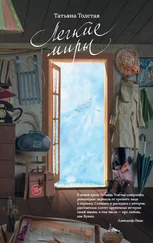And so the instructor must find more nurturing and beguiling ways to make the student realize he is a lazy ignoramus (if that is, indeed, what she wants him to realize), so that very student will be forced to admit it to himself and his friends will be able to corroborate it. Any earnest appeal to principles, to conscience, to exemplars worth aspiring to, or other such highfalutin crap that’s so popular in my homeland, doesn’t work here at all. Here one must provide nonstop entertainment for the group while simultaneously making each and every student feel they are number one, the subject of boundless and incessant care. All this without familiarity. And without fulsome praise. If a professor attempts to weasel their way into a student’s favor with too much fawning or too high a grade in the hopes of receiving a good evaluation, the student will only come to despise them and, upon getting the last word, shit all over them.
It’s also advisable to put aside one’s intellect: intelligence is annoying. Employ a simpler vocabulary—the students already complained I was using too many words they didn’t know. Try being Puss in Boots infused with the Stanislavski method.
An experienced educator knows: there’s no point in teaching the students. What you need to do is make them feel taught by term’s end.
I turned out to be a poor instructor, but at this psychological trickery and buffoonery calibrated for local conditions, I excelled, though not immediately. At the end of the first year, the students, to whom I’d stupidly and earnestly given my all, gave me poor marks and wrote negative evaluations. The other professors, my friends who cared about me, were devastated.
“You’re a foreigner, Tatyana, you don’t get how it works here. Let us help you, train you, try to fix this.”
“It’s okay. I can manage.”
“But if you get poor evaluations next year, they’ll fire you! And we don’t want to lose you!”
And I don’t want to lose my house, I said to myself. I need this job, and I will keep it. If I need to get on all fours and bark, I’ll get on all fours and bark. Because I love my house, and it loves me.
The following semester I received top marks from all my students. My friends marveled as if I were Uri Geller and had just made a stopped watch tick.
“How did you manage that?! In a single semester? That’s never happened in the entire history of the college! What did you do?”
“I dunno,” I lied, impudently looking them straight in their earnest eyes of liberal intellectuals. I mean, I couldn’t very well admit to them that I had indeed got on all fours and barked for love.
§
Door to door, it’s two hundred twenty miles from my house to the college—four hours of driving. It’s winter.
On Monday, may it be damned, the alarm goes off at 5:00 a.m. I jump up like a soldier; half an hour to shower and brew five cups of strong Turkish coffee: one for now, four for the thermos. Sandwiches are prepared the night before; a pack of Benson & Hedges menthols is always in the car. Apples are quartered and thrown into a Ziploc bag. Cassettes of Russian rockers Grebenshchikov and Khvostenko, angels of the divinely absurd. Also recorded lectures about something obscure and complicated, so my brain is forced to work and not sleep: Chinese philosophy, the history of opera, quantum mechanics. Also audiobooks of British detective novels (can’t do classic literature, too soporific; to avoid conking out during the drive one needs simple impatient curiosity: who dunnit?). If you assume that five hours of sleep is enough, you are assuming incorrectly.
So as not to wake up my family, I sleep in the magical room. It has a door that opens straight into the garage. A cold draft whooshes in under the door, making the room feel uninviting during winter nights, but only for those who don’t know and can’t see: there is entry here into aetherial worlds. The house is surrounded by snow, piled high; when the sun comes up, it illuminates the room from one side to the other, from the pink southern snowbanks to the pale blue northern ones, and the room will be like a ship, swaying in the air. We don’t know where happiness comes from, but places do exist where it’s sprinkled into heaps. Each time I take off, I leave happiness behind.
I walk out into the garage, get in the car, slam the door, turn on the headlights: the shelves with old crap from David and Nora, the cans with dried-up paint, Grandpa’s sled, curled-up green water hoses, rusted rakes—all is illuminated. I’m an automaton, all my moves repetitive, economical, and calculated.
Opening the garage door with the remote, backing out, closing the door with the remote. Peeling out into the street, making a U-turn, and going north—by feel, slicing through the inky darkness, diving down hills into valleys, on empty narrow roads, past sleeping villages and lonely farms demarcated by tiny beads of light.
This pitch-black hour is the most horrible in my life; it repeats week after week, year after year. I am half reclined in a sarcophagus scattered with litter, as if a long-forgotten, distant relative of some pharaoh, surrounded by her ushabti and her vessels for drinking and eating, which are supposed to last until the Day of Judgment, when one is called and asked: Didst thou steal? Didst thou take from a widow? Didst thou add to the weight of the balance and didst thou falsify the plummet of the scale? There is no greater loneliness, no sharper coldness, no deeper despair. No one is thinking of me in this emptiness—my father is dead, and the rest are sleeping. I have no friend, and no place to find one.
But this death alights upon me for only an hour, and then it’s annulled, as all death is annulled, its sting removed, as we’ve been promised. I know what intersection I am about to cross and under which trees I’ll be stopped at a red light when the heavy, heatless crimson sun appears over the horizon. I know which road I’ll be turning onto as it rises up in the sky in all its morning glory—raging and white, as in those ferocious Turner paintings—blinding all who are speeding northeast behind me. Lower the visor, put on the sunglasses: an entire army of drivers gears itself simultaneously; we are all automatons, all gnawing our way through this difficult world with our crumbling teeth.
No, five hours is not enough sleep, and so the entire journey is devoted to keeping myself from nodding off and hitting the divider; from flipping over, crashing into an oncoming car. Methodology is as follows: continuous coffee-drinking and smoking, cracking the window to let in the frigid air, munching on something and listening to Grebenshschikov at full blast, or, better yet, singing at the top of my lungs and drowning out my idols. This car full of crazy is speeding down American roads, flying onto the four-lane highway, and I can see that I’m not the only one: there is smoking and singing in other cars, too, while the most passionate are dancing at the wheel, drumming away with one hand or both. Finally the highway goes its own way, whistling and rattling, as I veer north; the sun is already high up in the sky, back to its normal size, nothing special.
The air outside is razorlike, the landscape now of cliffs, pines, and new types of birds—perhaps eagles, even. From the mountaintops one can see spectacular valleys, rivers snaking through them, and new skies opening up; everything is different, and beyond the blue mountains—Canada.
§
By November’s end my students completely stop applying themselves. The other professors tell me:
“What do you expect, they had an entire week off, they spent it skiing in the Adirondacks—you must know how hard it is to get back into it after vacation! If you want learning, writing, thinking out of them, you’ve got to get it before Thanksgiving. Because now, the plague is coming.”
Читать дальше






